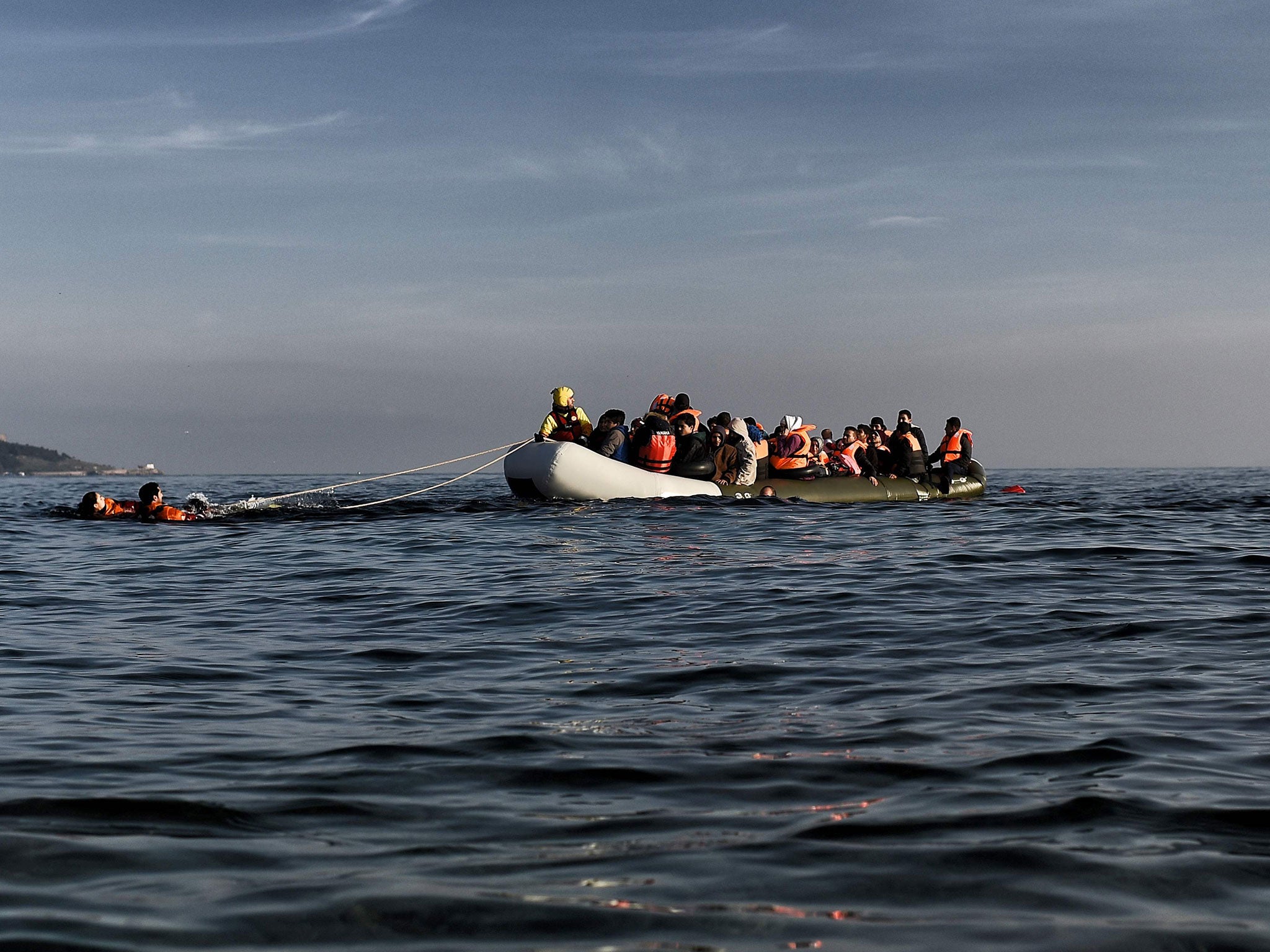We must not allow our horror at the refugee crisis to be blunted by fatigue
Shock tactics ought to be used sparingly, yet it remains deeply shocking that, month upon month, hundreds more people die in overcrowded ships as they attempt to escape war, persecution and poverty


Last week The Independent was awarded a prize by the International News Media Association for its #refugeeswelcome campaign. The campaign was launched back in September as debates raged about how Britain – and Europe – should best respond to the refugee crisis precipitated by conflicts in Syria, Iraq, Libya and elsewhere.
Pictures of a little boy, Aylan Kurdi, whose dead body was found washed ashore on a Turkish beach seemed to symbolise both the tragedy of the situation and the failure of authorities to get to grips with the reality of what was happening. Kurdi was simply one among many desperate people, seeking a better life in Europe but never making it across dangerous seas.
We published pictures of Kurdi because we believed policymakers here were ignoring the plight of others like him. The response of our readers, in urging the government to act, and soon afterwards the Prime Minister's announcement that Britain would take in more refugees, vindicated the decision.
Yet, only eight months later, refugees and migrants continue to perish in large numbers as they attempt to cross the Mediterranean.
A deal between Turkey and the EU has, to a degree, reduced the numbers seeking to enter Europe from the warzones of Syria and Iraq. Refugee camps in Lebanon, Turkey itself and other countries in the Middle East, are more likely to be the destination point for those fleeing Isis, or Assad's army, or Jabhat al-Nusra, or whichever force it may be that day. But for those coming from Libya, the journey to Europe remains frighteningly straightforward: find a people smuggler, pay your money and a berth on a barely seaworthy vessel is yours. Whether you actually make it to Italy is another matter.
Medicins Sans Frontier estimates that 900 people drowned last week attempting the crossing. The UNHCR reckons the number is closer to 700. Either way, that's a lot of bodies. Many are children too – the front page of Sunday's Independent daily app edition noted that a third of the refugees entering Europe so far this year are estimated to be under 18. There are dozens of Aylan Kurdis.
So why not run pictures of them all? There are any number of photographs available if we want to use them.
Publishing pictures of dead people is not something to be done lightly, in part because we don't want to go out of our way to upset readers for the sake of it; but also, conversely, because the worst thing that could happen would be for readers to become acclimatised to such horrors, or fatigued by the grimness.
A reader recently complained about another image of a dead refugee child, which we had used some months after the coverage of Aylan Kurdi's death. It was in its own way just as upsetting: it depicted, in the final analysis, the same tragic climax to a dashed hope. But the reader suggested we were disrespecting this child, using him as ‘clickbait’ to drive traffic to our website.
That, I know with confidence, is absolutely not the case. But it shows how easily ulterior motives can be ascribed to our publishing decisions. Likewise, we don't publish images of dead people in the hope that we might be awarded accolades by our peers.
Shock tactics ought to be used sparingly. And yet it remains deeply shocking that, month upon month, hundreds more people die in overcrowded ships as they attempt to escape war, persecution and poverty.
It is horrifying that they take the risk; it is mortifying that Western nations appear paralysed in their attempts to find a lasting solution. In that context, oughtn't it be a shock that the refugee crisis isn't on the front page of every paper and the homepage of every news website almost daily?
Well actually, no. One of the things which makes us human is that we can hold many thoughts in our brains at once. By thinking about the EU referendum, we are not intrinsically forgetting about dying refugees. When a media outlet leads with a story about NHS doctors' contracts, it isn't saying that refugees no longer matter.
Journalism may be an early draft of history. As such, some stories may be shown in due course to be less significant than others. Day-to-day we should do our best to give more attention to those matters which we believe are most important – which is why the refugee crisis has been so extensively covered by The Independent. But that doesn't mean that we should ignore other issues: readers quite rightly have a range of concerns after all.
Likewise, our readers are sophisticated and understand that the refugee crisis raises any number of incredibly complex questions. If we were only to show pictures of dead children every day, we would be understating that complexity in favour of sensationalism.
Yes, we should be shocked, but we must also find a way to see beyond the simplistic horror in a way that helps to explain why thousands continue to risk their lives in rickety boats.
Will Gore is Deputy Managing Editor of The Independent and the London Evening Standard

Join our commenting forum
Join thought-provoking conversations, follow other Independent readers and see their replies